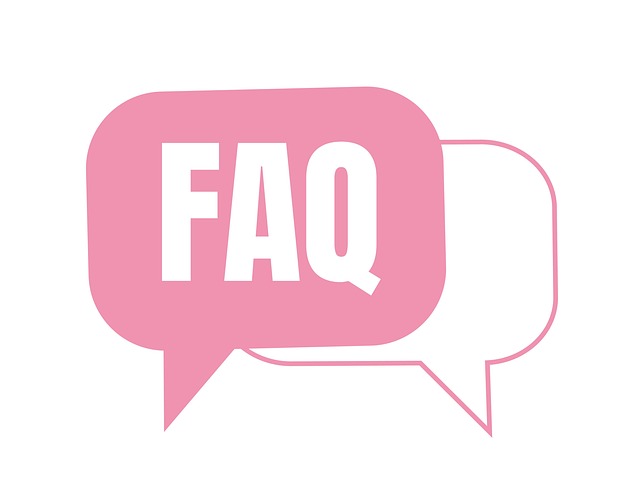The FAQPage schema is a powerful SEO tool that enhances online content performance by structuring Frequently Asked Questions (FAQs). It benefits websites with extensive knowledge bases, improving user engagement and search engine visibility. By using `<Question>` and `<Answer>` tags, and correctly validating with tools like Google's Structured Data Testing Tool, website owners can achieve FAQ Snippet Optimization. This leads to higher click-through rates, improved SERP rankings, and more rich snippet displays on Search Engine Results Pages (SERPs), ultimately driving increased organic traffic through enhanced user experience.
Adding the FAQPage schema to your website’s content is a powerful strategy to enhance user experience and boost search engine visibility. This schema, part of structured data markup, enables search engines to understand and display frequently asked questions (FAQs) in rich, interactive formats. By implementing this schema, you can expect increased engagement as users find answers quickly, while also securing more ‘real estate’ on search engine results pages (SERPs). Discover how to optimize your content for these enhanced FAQ results and unlock the full potential of structured data.
- Understanding FAQPage Schema: A Quick Overview
- Benefits of Implementing FAQPage Schema
- Key Elements to Include in the FAQPage Schema
- Optimizing Your Content for Rich FAQ Results
- Enhancing User Engagement with Structured Data
- Boosting Search Engine Visibility and SERP Real Estate
Understanding FAQPage Schema: A Quick Overview

The FAQPage schema is a powerful tool for enhancing online content, especially when it comes to search engine optimization (SEO). It provides a structured way to present Frequently Asked Questions, allowing search engines to understand and display rich snippets in the form of enhanced question-and-answer boxes. This schema is particularly beneficial for websites with extensive knowledge bases or customer support sections as it facilitates better user engagement and improves visibility on Search Engine Results Pages (SERPs).
Implementing the FAQPage schema involves using structured data to define questions, answers, and even add an accordion-like interface for a better user experience. This process, known as Accordion Schema SEO, enables search engines to extract relevant information from your content, resulting in what is commonly referred to as FAQ Snippet Optimization. By utilizing this schema effectively, website owners can expect increased click-through rates from users and better rankings on SERPs due to the enhanced display of frequently asked questions.
Benefits of Implementing FAQPage Schema

Implementing the FAQPage schema offers a multitude of advantages for website owners and content creators. One of its primary benefits is enhancing user engagement by providing a structured and accessible means to present frequently asked questions (FAQs). This schema allows search engines to comprehend the nature of your content, leading to rich FAQ results that display in a visually appealing and interactive format. By utilizing Accordion Schema SEO, you can organize your FAQs into sections, making it easier for users to navigate and find the answers they seek.
Moreover, adding this schema improves your site’s visibility on search engine result pages (SERPs). Search engines like Google are continually evolving their algorithms to provide users with more relevant and useful information. The FAQPage type schema signals to these algorithms that your content is well-structured, user-friendly, and designed to offer quick answers. This can lead to higher rankings and increased organic traffic, as search engines prioritize delivering comprehensive results that meet user intent.
Key Elements to Include in the FAQPage Schema

When implementing the FAQPage schema, several key elements are essential to ensure its effectiveness and maximize the potential for rich FAQ results on search engine result pages (SERPs). Firstly, each question-answer pair should be structured within a “ and “ tag, clearly defining the query and its corresponding response. The `name` attribute of the “ element should accurately reflect the content, making it easily understandable for both users and search engines.
Additionally, providing a concise and accurate `shortName` for the FAQPage type enhances accessibility and contextual understanding. This short name can be used to link back to specific questions or the entire FAQ section on your website. How to Add FAQ Schema is straightforward; ensure you mark up each question-answer pair with the appropriate schema vocabulary, validating your implementation using tools like Google’s Structured Data Testing Tool. By incorporating these elements, you not only improve user engagement through better accessibility and navigation but also enhance your site’s visibility by enabling search engines to understand and display your FAQ content in rich, featured snippets, thereby increasing your SERP real estate.
Optimizing Your Content for Rich FAQ Results

To optimize your content for rich FAQ results, incorporating a Schema for FAQs is a strategic move that enhances both user experience and search engine visibility. The Schema FAQPage type signals to search engines that your content includes frequently asked questions and answers, making it more likely to be displayed as a rich snippet in SERPs. This format provides users with immediate access to concise, valuable information without them needing to navigate through lengthy pages.
By implementing FAQ Snippet Optimization, you can ensure that the most relevant and useful questions are highlighted, attracting clicks and increasing engagement. The structured data not only makes your content more scannable but also helps search engines better understand its context. This, in turn, improves your chances of securing a prominent position in SERPs, allowing you to capture a larger share of user attention and drive more traffic to your site.
Enhancing User Engagement with Structured Data

By integrating a Schema for FAQs into your content, websites can significantly enhance user engagement and improve their visibility on search engine results pages (SERPs). Structured data, in this case, the FAQPage schema, provides search engines with valuable information about your content’s structure and purpose. This allows search engines to deliver what users are truly looking for by presenting rich FAQ results that offer concise, relevant answers directly within the search results.
Through FAQ Snippet Optimization using the Schema FAQPage Type, websites can capture a larger portion of the user’s attention on SERPs. The structured data helps search engines understand the context and organization of your frequently asked questions, enabling them to generate more accurate and engaging snippets. As a result, users are more likely to click through to your website, thereby increasing engagement metrics and potentially leading to longer dwell times and lower bounce rates.
Boosting Search Engine Visibility and SERP Real Estate

Implementing a Schema for FAQs can significantly enhance your website’s search engine visibility and its position on Search Engine Results Pages (SERPs). By utilizing the FAQPage schema, search engines understand the content structure better, which leads to improved indexing. This results in richer and more comprehensive rich FAQ results for users, making your site appear more attractive and relevant.
When search engines crawl a webpage with a properly structured Schema FAQPage type, they can easily identify and extract frequently asked questions along with their answers. This information is then displayed as direct answers or expanded sections within the SERP, capturing users’ attention and providing them with valuable insights without needing to click through. Thus, it increases the chances of higher rankings and more SERP real estate, ultimately driving more organic traffic to your site.
